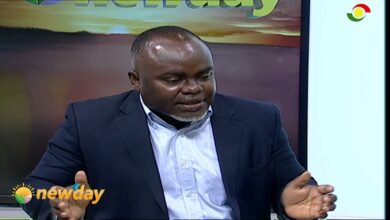Love Bombing Signs: How to Tell If It’s Love or a Manipulation

At first, it feels like you’ve hit the jackpot. You’ve only just started talking, but this person is already showering you with attention, affection, and constant messages. You’re being called “amazing,” “perfect,” “the one” — and you haven’t even had a proper first date. It feels exciting, intense, flattering.
But then, something starts to feel… off.
They’re moving a bit too fast. They want your time all the time. They make big promises before even knowing much about you. That flutter in your stomach? It might not be butterflies. It might be a warning sign.
What you’re experiencing could be lovebombing.
What is Love Bombing?
Lovebombing is when someone uses excessive affection, praise, and attention early on — not out of genuine connection, but as a tactic to gain control or emotional influence. It’s often the first stage in a pattern of manipulation, and it can be emotionally draining or even damaging down the line.
Love Bombing Signs You Should Notice
If you’re in the “talking stage” and something seems too good to be true, here are seven clear ways to tell if you’re dealing with a lovebomber.
1. They Move at Lightning Speed
Lovebombers often rush the relationship before it’s had any time to develop naturally. They might be calling you their “soulmate” after just a few conversations or claiming they’ve “never felt this way about anyone before.”

They’ll talk about the future — holidays together, meeting your family, even marriage — before you’ve even figured out their middle name.
What to watch for:
Why it’s a red flag: Healthy relationships evolve gradually. If someone’s trying to skip emotional stages, it’s often about control, not connection.
BE INSPIRED: Thoughtful ways to support your friend’s business (beyond just buying something)
2. They Overwhelm You With Compliments and Gifts
We all love a sweet compliment — but lovebombers take it to another level. They’ll constantly tell you how beautiful, special, or “unlike anyone else” you are, often before they’ve even really gotten to know you.
They may also give you over-the-top gifts, spend loads of money unnecessarily, or make grand gestures too early.

What to watch for:
Why it’s a red flag: It’s not real affection — it’s emotional manipulation disguised as romance.
ALSO READ: Do you feel emotionally off after sex? Here’s why
3. They Demand Constant Contact and Instant Replies
In the early stages of getting to know someone, it’s normal to text regularly. But if they start messaging non-stop, get annoyed when you don’t reply immediately, or expect your full attention 24/7 — that’s not romantic, it’s invasive.

What to watch for:
A lovebomber will try to monopolise your time and keep your focus on them to create a false sense of emotional dependency.
ALSO READ: Effortless ways to look put together without trying too hard
4. They Get Jealous Before They Have Any Right To
You’ve only just started chatting, and suddenly they’re acting possessive — questioning who you’re out with, making passive-aggressive comments about your friends, or asking who’s liking your posts.

What to watch for:
This is an early sign of control disguised as concern. Healthy connections are built on trust, not suspicion.
5. They Use Emotional Language to Create a False Bond
Lovebombers are masters at saying exactly what you want to hear — or what they think will make you emotionally attached. They’ll use intense emotional language very early, before a genuine bond has formed.

What to watch for:
Why it’s a red flag: Real emotional intimacy takes time. Lovebombers create a false sense of closeness that can cloud your judgement.
READ ALSO: These evening rituals to help you sleep better and feel calmer
6. They Struggle With Boundaries — And Push Yours
Lovebombers may test your boundaries — emotional, physical, or even digital — and then act confused or hurt when you assert them. They might say things like, “Why are you being distant?” or “I just care about you so much” to make you feel guilty for drawing a line.

What to watch for:
Respecting boundaries is a non-negotiable in any healthy relationship. If someone can’t do that, it’s a sign they’re more interested in control than connection.
7. They React Poorly When You Try To Slow Things Down
The moment you try to pump the brakes — even slightly — the lovebomber’s energy shifts. They might go cold, sulk, lash out emotionally, or accuse you of “not feeling the same.”
What to watch for:
Why it’s a red flag: Lovebombing often leads to emotional manipulation. When you stop feeding their need for constant connection, their mask may slip — and their true motives show.
ALSO READ: Simple bags every woman should own

Real Love Doesn’t Rush or Overwhelm
It’s easy to confuse intensity for intimacy — especially when we crave connection. But love that burns too bright, too fast, often fizzles out or becomes something darker. Real love is steady, respectful, and doesn’t need to prove itself with grand declarations or constant contact.
So if someone’s making you feel like you’re in a whirlwind — before you’ve even had time to breathe — listen to your instincts. You deserve to build something meaningful, not be swept up in a performance of passion.
Red flags aren’t just things to notice — they’re signs to act on.








